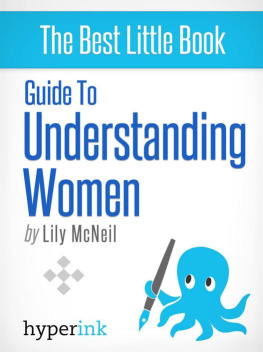McNeil - An Encyclopedia of the History of Technology
Here you can read online McNeil - An Encyclopedia of the History of Technology full text of the book (entire story) in english for free. Download pdf and epub, get meaning, cover and reviews about this ebook. publisher: Routledge, genre: Non-fiction. Description of the work, (preface) as well as reviews are available. Best literature library LitArk.com created for fans of good reading and offers a wide selection of genres:
Romance novel
Science fiction
Adventure
Detective
Science
History
Home and family
Prose
Art
Politics
Computer
Non-fiction
Religion
Business
Children
Humor
Choose a favorite category and find really read worthwhile books. Enjoy immersion in the world of imagination, feel the emotions of the characters or learn something new for yourself, make an fascinating discovery.
- Book:An Encyclopedia of the History of Technology
- Author:
- Publisher:Routledge
- Genre:
- Rating:5 / 5
- Favourites:Add to favourites
- Your mark:
- 100
- 1
- 2
- 3
- 4
- 5
An Encyclopedia of the History of Technology: summary, description and annotation
We offer to read an annotation, description, summary or preface (depends on what the author of the book "An Encyclopedia of the History of Technology" wrote himself). If you haven't found the necessary information about the book — write in the comments, we will try to find it.
An Encyclopedia of the History of Technology — read online for free the complete book (whole text) full work
Below is the text of the book, divided by pages. System saving the place of the last page read, allows you to conveniently read the book "An Encyclopedia of the History of Technology" online for free, without having to search again every time where you left off. Put a bookmark, and you can go to the page where you finished reading at any time.
Font size:
Interval:
Bookmark:
AN ENCYCLOPAEDIA OF THE HISTORY OF TECHNOLOGY
EDITED BY IAN McNEIL |

First published 1990
by Routledge
11 New Fetter Lane, London EC4P 4EE
This edition published in the Taylor & Francis e-Library, 2002.
Simultaneously published in the USA and Canada
by Routledge
a division of Routledge, Chapman and Hall, Inc.
29 West 35th Street, New York, NY 10001
Routledge 1990
All rights reserved. No part of this book may be reprinted or reproduced or utilized in any form or by any electronic, mechanical, or other means, now known or hereafter invented, including photocopying and recording, or in any information storage or retrieval system, without permission in writing from the publishers.
British Library Cataloguing in Publication Data
An Encyclopaedia of the history of technology
1. TechnologyHistory
I. McNeil, Ian
609 T15
ISBN 0-415-01306-2 (Print Edition)
Library of Congress Cataloging in Publication Data
An Encyclopaedia of the history of technology/edited by Ian McNeil.
p. cm.
Bibliography: p.
Includes index.
ISBN 0-415-01306-2 (Print Edition)
1. TechnologyHistory. I. McNeil, Ian.
T15.E53 1989
609dc20 89-10473
CIP
ISBN 0-203-19211-7 Master e-book ISBN
ISBN 0-203-19214-1 (Glassbook Format)
Ian McNeil
A.S.Darling
W.K.V.Gale
Lance Day
F.Kenneth Major
E.F.C.Somerscales
Brian Bowers
A.K.Corry
Ian McNeil
John Boyes
A.W.H.Pearsall
P.J.G.Ransom
J.A.Bagley
John Griffiths
Lance Day
Herbert Ohlman
Andrew Patterson
Richard Hills
Doreen Yarwood
Doreen Yarwood
R.A.Buchanan
Charles Messenger
Dr Johnson wrote, A man may turn over half a library to make one book. In the present case around a score of writers have turned over about as many libraries to make this Encyclopaedia. The Book of Proverbs states, God hath made man upright; but they have sought out many inventions. Whatever one may think about Charles Darwins Descent of Man, it is a fact that man walked upright, giving him a pair of hands which he could use for manipulation, rather than ambulation, and his cranial capability enabled him to evolve many inventions. This book tells the story of these inventions from stone axe to spacecraft, from cave dwelling to computer. The objective has been to simplify the study of the History of Technology by putting into the hands of the reader, be he or she student or layman, a single volume telling the whole story in twenty-two chapters, each written by an acknowledged expert.
The content and layout of this book are based on an analysis of human needs. From earliest times man has existed in a fundamentally hostile environment and has had to use his wits in the struggle for survival. From the start, this has involved his remarkable power of invention. Other primates, such as chimpanzees, have been known to add one stick of bamboo to another to enable them to reach and hence to enjoy a banana otherwise out of reach. Many species of birds show remarkable ingenuity in the construction of their nests, while insects like the ant, the wasp and the bee display a constructive capacity which could be mistaken for genuine creativity, but these examples are no more than instinctive and isolated responses to a set of circumstances peculiar to the species. Only God knows why man is the only species of animal capable of inventive thought and equipped with the dexterity to make practical use of his ideas.
The Encyclopaedia had its inception during the period when I was Executive Secretary of the Newcomen Society for the Study of the History of Engineering and Technology, and worked from an office within the Science Museum in London's South Kensington. In this position I was able to call upon a host of specialists, many of whom are members of the Society, and some also on the curatorial staff of that excellent institution. Thus while the conception, chapter contents and planning were my responsibility, the execution of the work was dependent on the contributors. I would like to thank them all for keeping to my original plan and layout, only adding topics that I had inadvertently omitted, and for the excellent chapters that they have written.
The final text has benefited enormously from the work of Mrs Betty Palmer who has laboured hard and long to cut out duplications, correct errors and generally shape the disparate typescripts into a uniform and coherent style. I would like to record my thanks to her, as well as to Jonathan Price and Mark Barragry of Routledge for their patience, good humour and encouragement. My gratitude must also go to the proof readers John Bell, George Moore and Jenny Potts and to the indexer, Dr Jean McQueen, whose work has contributed so much to the usefulness of the Encyclopaedia. I would like also here to acknowledge the generosity of the Trustees of the Science Museum for permission to reproduce over 60 of the illustrations contained in this book and thank the staff of the Science Museum Photographic Library for their assistance in tracking down photographs sometimes specified only vaguely.
Lastly I would like to thank my wife for her patience and forbearance. The period of gestation of this book has been longer than the others I have written and has caused a greater amount of paperwork to accumulate around my desk than usual. She has put up with it all with admirable fortitude.
Ian McNeil
Banstead, Surre
To the memory of
THOMAS NEWCOMEN
who built
the first engine to work
without wind, water or muscle power
IAN McNEIL
It is strange that, in the study and teaching of history, so little attention is paid to the history of technology. Political and constitutional history, economic history, naval and military history, social historyall are well represented and adequately stressed. The history of technology is neglected in comparison yet, in a sense, it lies behind them all. What monarchs and statesmen did in the past, how they fought their wars and which side won, was largely dependent on the state of their technology and that of their enemy. Their motivation was more often than not economic, and economic history and the history of technology can surely be considered as twin hand-maidens, the one almost totally dependent on the other. So far as social history is concerned, the lot of the common man, as of his king and his lords, was usually directly related to the state of technology prevailing at any particular time and place, whatever political and economic factors may also have been of influence.
Technology is all around us: we live in a world in which everything that exists can be classified as either a work of nature or a work of man. There is nothing else. We are concerned here with the works of man, which are based on technological and, to some extent, aesthetic factors. It is a sobering thought that every man-made object of practical utility has passed through the process of conception, testing, design, construction, refinement, to be finally brought to a serviceable state suitable for the market. Aesthetics may have entered into the process of development and production at some stage, increasingly so in our present consumer age, although from a glance at some of the products on the market, one might well question the makers' artistic sensibility.
Font size:
Interval:
Bookmark:
Similar books «An Encyclopedia of the History of Technology»
Look at similar books to An Encyclopedia of the History of Technology. We have selected literature similar in name and meaning in the hope of providing readers with more options to find new, interesting, not yet read works.
Discussion, reviews of the book An Encyclopedia of the History of Technology and just readers' own opinions. Leave your comments, write what you think about the work, its meaning or the main characters. Specify what exactly you liked and what you didn't like, and why you think so.

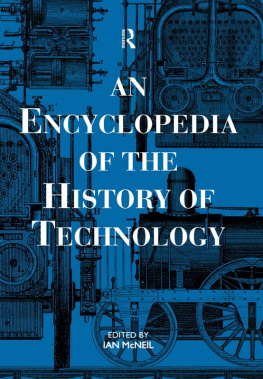
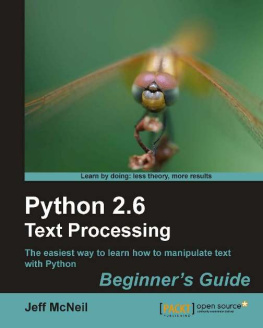




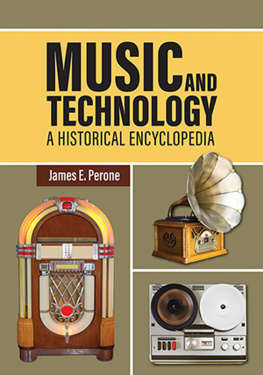
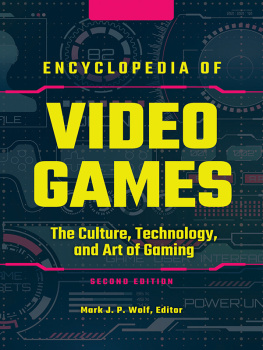
![Mark J. P. Wolf (editor) - Encyclopedia of Video Games: The Culture, Technology, and Art of Gaming [3 volumes]](/uploads/posts/book/279290/thumbs/mark-j-p-wolf-editor-encyclopedia-of-video.jpg)



